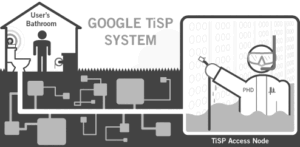The other day I compared the cost of sending an international bank wire using Afex or using Western Union Globalpay (WUGP). On a ten thousand dollar wire to Switzerland, I saved seven hundred dollars for the client by using Afex instead of WUGP (blog article). Today I did a couple more bank wires, one to Canada and another to Japan. This blog article compares the costs. Continue reading “Two more data points on international wire transfer costs”
Get your numbers in for the 2018 US Plant Patent tote board
The goal of this toteboard is to list the firms that helped clients to obtain US plant patents in 2018. It will rank the firms according to the number of US plant patents obtained. Respondents are asked to report only US plant patents for which the firm is listed on the front page of the granted patent. Please respond by Thursday, March 21, 2019.
You can see the previous Toteboards here.
To send in your numbers for the 2018 US Plant Patent tote board, click here.
It is also time to report your numbers for the 2018 US Design Patent tote board and the 2018 US Utility Patent tote board and the 2018 trademark registration tote board.
Get your numbers in for the 2018 US design patent toteboard
Continue reading “Get your numbers in for the 2018 US design patent toteboard”
Get your numbers in for the 2018 US utility patent tote board
A year ago I published the 2017 US Utility Patent Toteboard and before that, the 2016 US Utility Patent Toteboard, and a year before that the 2015 US Utility Patent Toteboard. Now it’s time to finalize and publish the 2018 US Utility Patent toteboard.
The goal of this toteboard is to list the firms that helped clients to obtain US utility patents in 2018. It will rank the firms according to the number of US utility patents obtained. Respondents are asked to report only US utility patents for which the firm is listed on the front page of the granted patent. Please respond by Thursday, March 21, 2019.
You can see the previous Toteboards here.
To respond to be listed in the US Utility Patent Tote Board, click here.
It is also time to report your numbers for the 2018 US design patent tote board and the 2018 US trademark registration tote board and the 2018 US plant patent tote board.
Get your numbers in for the 2018 US trademark registration toteboard
It’s that time of year again. A year ago we published the 2017 US Trademark Toteboard and before that, the 2016 US Trademark Registration Tote Board and before that, the 2015 US Trademark Registration Tote Board. Now it’s time to get your numbers in for the fourth annual US Trademark Registration Tote Board.
The goal of this toteboard is to list the firms that helped clients obtain US trademark registrations in 2018. The toteboard seeks to list US trademark registrations granted in 2018. The closing date for the questionnaire will be Thursday, March 21, 2019.
You can see the previous Toteboards here.
To learn more and to report your numbers for the 2018 US Trademark Registration tote board, please click here.
It is also time to report your numbers for the 2018 US Design Patent tote board and the 2018 US Utility Patent tote board and the 2018 US Plant Patent tote board.
Solving the “last mile” problem

With the fast pace of technological change, one of the biggest problems has been the “last mile” problem. High-speed internet has little difficulty reaching a node that might be a mile away from your home or office. But that pesky “last mile” is the challenge. (For example our Westminster office is far enough from the phone company central office that DSL is not very fast.)
It’s not only Internet connectivity that suffers from the “last mile” problem. For package delivery, in desperation Fedex devised the misnamed Smartpost, a service in which Fedex hands off your package to the Postal Service for that last mile of delivery. And UPS devised the equally misnamed Surepost which works the same way.
So I was fascinated to be reminded of a “last mile” solution for internet access that Google proposed a few years ago, called TiSP. The idea was that you would drop a weighted fiber-optic cable down your sewer line and it would reach an internet node. Continue reading “Solving the “last mile” problem”
Whither Daylight Saving Time?
More than five hours have passed since my blog posting that points out that right now you probably have an extra hour for e-filing of stuff at the International Bureau of WIPO. Why do you have this extra hour? You have this extra hour because probably you are in the US and you set your clocks forward. And (this is the important part) the folks in Switzerland did not pick today to set their clocks forward. (They will set their clocks forward in about three weeks, on March 31.)
Anyway, during this past five hours I sort of figured that at least one alert reader would have posted a comment about the imminent demise of Daylight Saving Time. Yet, astonishingly, this has not happened! So I will now discuss the imminent demise of Daylight Saving Time. Continue reading “Whither Daylight Saving Time?”
e-filing at WIPO – you get an extra hour
 It’s that time of year again. People in the US who sometimes e-file stuff at the International Bureau at WIPO will have memorized exactly what the local time is that works out to being midnight in Switzerland … and for the next three weeks, the answer to this question will be different from the usual answer. Continue reading “e-filing at WIPO – you get an extra hour”
It’s that time of year again. People in the US who sometimes e-file stuff at the International Bureau at WIPO will have memorized exactly what the local time is that works out to being midnight in Switzerland … and for the next three weeks, the answer to this question will be different from the usual answer. Continue reading “e-filing at WIPO – you get an extra hour”
US patent prosecution boot camp – Philadelphia in May
There are only a few good ways for a new US patent practitioner to get training. One of these ways is the AIPLA Patent Prosecution Boot Camp, which will take place May 13-15, 2019 in Philadelphia.
Your truly will once again have the honor of serving with the other faculty members of this boot camp. I know, having served on the faculty of this boot camp for many years now, that the other practitioners who give their time and energy to this program are among the most skilled, experienced, and generous as any in the patent profession.
To find out more, or to register, click here.
Who charges how much for foreign payments?
As readers of this blog are by now well aware, my most recent obsession area of inquiry has been the sending and receiving of international bank wires. More or less by accident I have stumbled upon smart ways to receive international bank wires. As I describe in this blog article, more or less by accident our situation is that for our patent firm, we now receive our incoming foreign bank wires free of charge through Afex.com, and for my personal bank account, I receive my incoming foreign bank wires free of charge because the bank is USAA.
As for the foreign sender of funds, if the foreign sender of money to our patent firm happens to be a customer of Afex.com, they can send money to us and they will likewise not have to pay any fee (other than perhaps a currency conversion fee).
But how about sending bank wires? Who charges more and who charges less for sending bank wires to foreign countries? Here is a specific example of what it would cost to send about ten thousand dollars to Switzerland by any of three different providers. I find the price differences to be striking. Continue reading “Who charges how much for foreign payments?”
